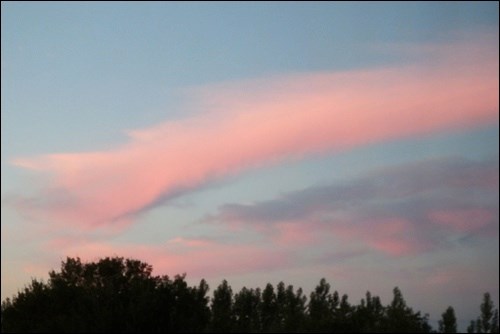I have been spending time developing a music library for a T. Eaton Catalogue house which was built in 1917. The work is an exercise in confusing technology and annoying frustration. It is also an emotional journey. One 78 rpm. record which has been copied to a compact disc features Joyce Hahn, once the star of the CBC-TV program Cross Canada Hit Parade. That was a long time ago. Through the pops and hisses of the old platter emerges the young sweet, voice of a woman with whom I share a history. When my town was a village, it became home to one of the first two 10-bed union hospitals built in the province. I was born there in 1927. Joyce was born there two years later.
The internet is the dangerous domicile of crooks and schemers, but I have searched there bravely to find the disembodied vocalists and musicians of years gone by. The search continues to be a catharsis. The sounds captured in the old recordings are as precious as amber. I hear vocalists and musicians who are dead but whose skills are still alive, bringing beauty and joy into a world that is contaminated with ugliness. Their music brings a brief escape from the grim realities of 2016. I can forget the errors, acrimony and vulgarity of the American presidential election campaigns. I can even set aside the nightmare of zealots kidnapping, enslaving, raping, murdering and destroying in the name of their prophets.
Inevitably in every historic collection of music, there must be songs that were born when terrible wars were raging. The best of them are not filled with the poison of hatred, but with love and longing. When I was an almost-man in high school, the last casualty list of the Second World War was still to be printed. I thought then, if the war went on for another two years, I would be a dead man or a coward. In the meantime, I learned the lyrics to all the popular songs I heard.
Youths are often referred to as callow. I was callow. Because of ignorance and vanity, I withheld from others the respect and understanding they deserved. My memory paints their faces. I wish they were still alive so that I could find them and tell them that I understand now, that I admire them and care about them. We can’t go back to undo what we never should have done nor to do what we never should have left undone. This is why all the music I cherish is tinged with sadness.
Orators often speak of the “better angels of our nature.” I think enduring music is written and performed by the better angels of our nature. And it is listened to – sometimes tearfully – by old men like me. To-morrow I shall find a sprightly polka or a dainty minuet. If nobody is looking, I shall dance with the memory of a beautiful girl in my arms.



